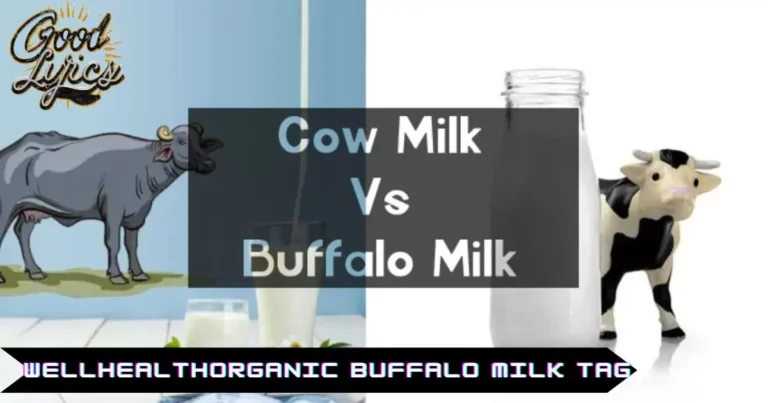
Why Do We Need Proteins?
Proteins are the building blocks of life. Every cell contains protein, which is crucial for repairing tissues, making enzymes and hormones, and supporting overall bodily functions. Without sufficient protein, the body struggles to perform these essential tasks, leading to a variety of health issues. Protein is not only important for muscle growth and repair but also for maintaining a healthy immune system, producing energy, and supporting metabolic processes.
In addition to its structural role, protein plays a vital part in the transport of nutrients and oxygen throughout the body. It aids in the formation of antibodies that help fight infections, making it indispensable for maintaining good health. Without adequate protein, the body’s ability to heal and regenerate is compromised.
What Are The Effects of Protein Deficiency?
A lack of protein in the diet can lead to serious health consequences. Protein deficiency manifests in various ways, ranging from mild symptoms like fatigue and hair loss to severe conditions such as kwashiorkor and marasmus. In children, insufficient protein intake can stunt growth and lead to developmental delays.
Common symptoms of protein deficiency include:
- Muscle wasting: As the body breaks down muscle tissue to meet protein needs.
- Edema: Swelling caused by fluid retention, often seen in cases of severe deficiency.
- Weakened immune system: This leads to increased susceptibility to infections.
- Brittle hair and nails: Indicating poor structural support due to lack of protein.
Long-term deficiency can also impair the function of various organs, increase the risk of bone fractures, and lead to a decrease in overall quality of life. Recognizing these signs early is crucial for preventing more serious health issues.
How Much Protein Do Indians Need?
The protein requirement varies based on age, sex, physical activity, and health status. For the average Indian adult, the recommended daily intake is around 0.8 grams of protein per kilogram of body weight. However, for those who engage in regular physical activity, the requirement may increase to 1.2 to 1.7 grams per kilogram.
You may want to Read: Wellhealthorganic.com: Morning Coffee Tips With No Side Effect
For example:
- Sedentary adult: 0.8g/kg
- Physically active adult: 1.2g to 1.7g/kg
- Pregnant and breastfeeding women: 1.1g/kg
It’s important to note that these values are general recommendations and can vary based on individual needs. Consulting a healthcare provider or nutritionist can help determine the exact protein requirement for each individual.
Common Vegetarian Protein Sources In Indian Households
1. Legumes: Beans, Lentils, and Peas
Legumes are a cornerstone of the Indian vegetarian diet, providing a rich source of plant-based protein. Beans, lentils, and peas are not only versatile but also packed with essential nutrients like fiber, iron, and B vitamins. They are particularly valuable for their high protein content, making them an excellent meat substitute in vegetarian diets.
Nutritional Profile of Common Indian Legumes
| Legume | Protein (per 100g) | Fiber (per 100g) | Iron (per 100g) |
|---|---|---|---|
| Chickpeas | 19g | 8g | 6mg |
| Lentils | 9g | 8g | 3mg |
| Black Beans | 21g | 8g | 5mg |
| Peas | 5g | 5g | 2mg |
These legumes are not just protein-rich but also offer significant amounts of dietary fiber, which aids in digestion and helps maintain a healthy gut. Including a variety of legumes in your diet ensures a good balance of essential amino acids.
2. Quinoa: The Complete Protein
Quinoa is often referred to as a “complete protein” because it contains all nine essential amino acids that the body cannot produce on its own. This ancient grain has gained popularity in Indian diets for its exceptional nutritional profile and versatility in cooking.
You may want to Read: Wants and Needs Lyrics – Drake ft. Lil Baby
Nutritional Content of Quinoa
| Nutrient | Amount per 100g |
|---|---|
| Protein | 14g |
| Fiber | 7g |
| Iron | 4mg |
| Magnesium | 64mg |
Quinoa is also gluten-free, making it an excellent choice for those with gluten intolerance. Its high fiber content promotes digestive health, while its rich magnesium levels support muscle function and bone health. Incorporating quinoa into your meals can boost your protein intake while providing a host of other health benefits.
3. Nuts and Seeds: Compact Nutrient Dynamos
Nuts and seeds are small but mighty when it comes to nutritional value. They are packed with healthy fats, protein, fiber, vitamins, and minerals, making them an essential part of a balanced diet. Almonds, walnuts, chia seeds, and flaxseeds are among the most popular choices in Indian households.
Nutritional and Health Benefits of Common Nuts and Seeds
| Nut/Seed | Protein (per 100g) | Fiber (per 100g) | Healthy Fats (per 100g) |
|---|---|---|---|
| Almonds | 21g | 12g | 50g |
| Walnuts | 15g | 7g | 65g |
| Chia Seeds | 17g | 34g | 31g |
| Flaxseeds | 18g | 27g | 42g |
Nuts and seeds are also rich in antioxidants, which help protect the body from oxidative stress and inflammation. Adding a handful of nuts or seeds to your daily diet can provide a significant boost to your overall nutrient intake.
4. Soy Products: Tofu, Tempeh, and Edamame
Soy products are among the best plant-based protein sources available. Tofu, tempeh, and edamame are versatile ingredients that can be incorporated into various dishes. They are especially valuable for vegetarians and vegans, as they offer a high protein content comparable to animal-based sources.
Nutritional Profile and Benefits of Common Soy Products
| Soy Product | Protein (per 100g) | Iron (per 100g) | Calcium (per 100g) |
|---|---|---|---|
| Tofu | 8g | 1.8mg | 350mg |
| Tempeh | 19g | 2.7mg | 111mg |
| Edamame | 11g | 2.5mg | 63mg |
Soy products are also a good source of iron and calcium, making them an important part of a balanced vegetarian diet. Regular consumption of soy can help meet daily protein needs while offering additional benefits like improved bone health and reduced risk of heart disease.
5. Dairy Products: Cheese, Yogurt, and Milk
Dairy products are a staple in many vegetarian diets, providing not only protein but also calcium, vitamin D, and other essential nutrients. Cheese, yogurt, and milk are common sources of high-quality protein that support muscle growth and bone health.
Nutritional Profile of Common Dairy Products
| Dairy Product | Protein (per 100g) | Calcium (per 100g) | Vitamin D (per 100g) |
|---|---|---|---|
| Cheese | 25g | 721mg | 0.6mcg |
| Yogurt | 10g | 110mg | 0.1mcg |
| Buffalo Milk | 4g | 195mg | 0.2mcg |
| Cow Milk | 3.4g | 120mg | 0.05mcg |
| Goat Milk | 3.6g | 134mg | 0.1mcg |
Dairy products are particularly beneficial for bone health due to their high calcium content. Incorporating dairy into your diet can help meet protein and calcium requirements, especially for those who may not consume other animal products.
6. Eggs: High-Quality Protein
Eggs are considered one of the most complete sources of protein available. They contain all nine essential amino acids, making them an excellent option for those looking to increase their protein intake. Additionally, eggs are versatile and can be prepared in numerous ways, making them a convenient and nutritious choice.
Nutritional Profile and Health Benefits of Common Egg Products
| Egg Product | Protein (per 100g) | Vitamin B12 (per 100g) | Vitamin D (per 100g) |
|---|---|---|---|
| Whole Eggs | 13g | 1.1mcg | 2.2mcg |
| Egg Whites | 11g | 0.1mcg | 0.1mcg |
Eggs also contain essential vitamins and minerals such as vitamin B12 and vitamin D, which are important for energy production and bone health. Including eggs in your diet can provide a high-quality source of protein along with vital nutrients that support overall health.
Comparison Table of Animal vs. Plant Proteins
| Protein Source | Protein Quality | Digestibility | Amino Acid Profile |
|---|---|---|---|
| Animal Protein | High | Excellent | Complete |
| Plant Protein | Moderate to High | Good | Varies (often incomplete) |
Animal proteins are generally considered higher quality due to their complete amino acid profile, but plant proteins can still provide sufficient nutrition when combined properly. Understanding the differences between animal and plant proteins can help vegetarians make informed choices about their protein sources.
How to Calculate and Distribute Daily Protein Intake

Calculating your daily protein intake involves multiplying your body weight in kilograms by the recommended protein intake for your activity level. For example, a sedentary adult weighing 70kg would require:
70kg x 0.8g/kg = 56g of protein per day
Once you know your daily protein requirement, you can distribute it across your meals to ensure consistent protein intake throughout the day.
Example Plan:
- Breakfast: Quinoa porridge with nuts (15g protein)
- Lunch: Lentil soup with whole-grain bread (20g protein)
- Dinner: Tofu stir-fry with vegetables (21g protein)
This plan provides a balanced protein distribution throughout the day, ensuring that your body receives the necessary nutrients to function optimally.
Conclusion
Incorporating a variety of vegetarian protein sources into your diet is essential for meeting your daily protein needs. By understanding the nutritional profiles of different plant-based foods, you can create balanced meals that support overall health and well-being. Whether you’re relying on legumes, quinoa, nuts, seeds, soy products, dairy, or eggs, a well-planned vegetarian diet can provide all the protein and nutrients your body requires.
FAQs

Stay updated with the latest news and trending topics on my blogging website. From breaking stories to in-depth analyses, I bring you the most relevant updates concisely and engagingly!




